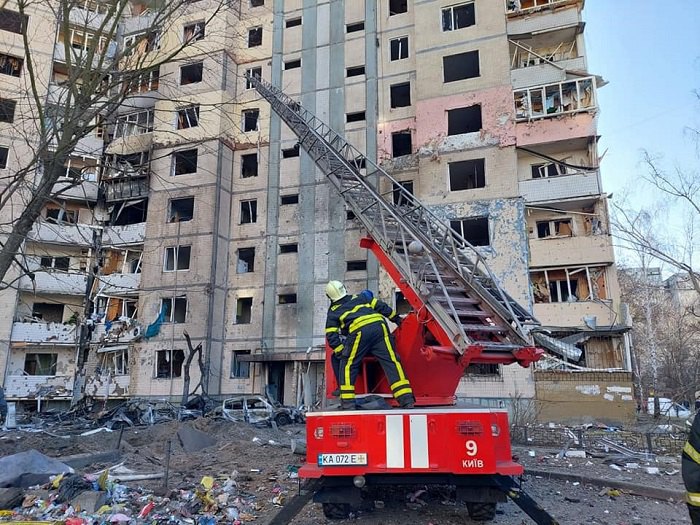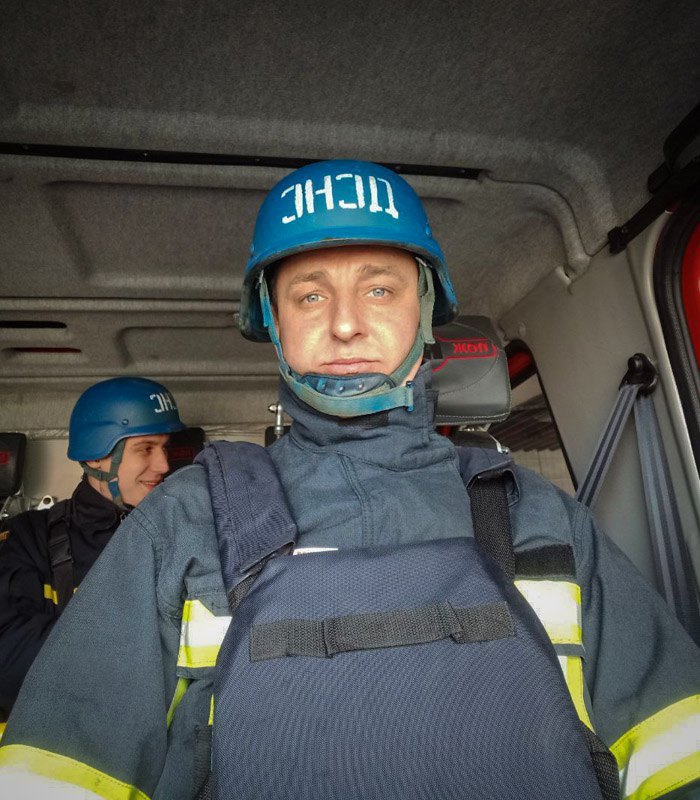
On 23 February, when I arrived at my shift, my soul was somehow restless. I felt anxious all day as if a professional feeling had worked. At 5:04 a.m. on 24 February, I heard a loud explosion. I ran to the guard room to alarm my comrades. I rushed into the room shouting, "Fuck, boys, it's started! The russians attacked us!" The boys got up and started getting dressed and preparing for the departures without panic.
I remember the first military trip well. The russians fired on Mykolayiv on the morning of 24 February, and calls about destruction and fires began.
We were not immediately allowed to leave. This is the worst thing in war - when you are not allowed to leave because of the shelling. You are a rescuer. They are waiting for you. You have to rush and help now... But they do not permit to leave because the shelling continues, and the team may die. Apparently, at that time it was the hardest for our telephone operators, who received these calls from all over the region. After a while, the military gave us permission - and all our teams rushed like crazy to the addresses.
"Now we have a job, like in a blockbuster. And I am very proud of my colleagues. We were told about the shelling, and each of us understood that leaving for a call could be the last because of a russian shell. We were scared, but none of my colleagues refused to work and go on call."
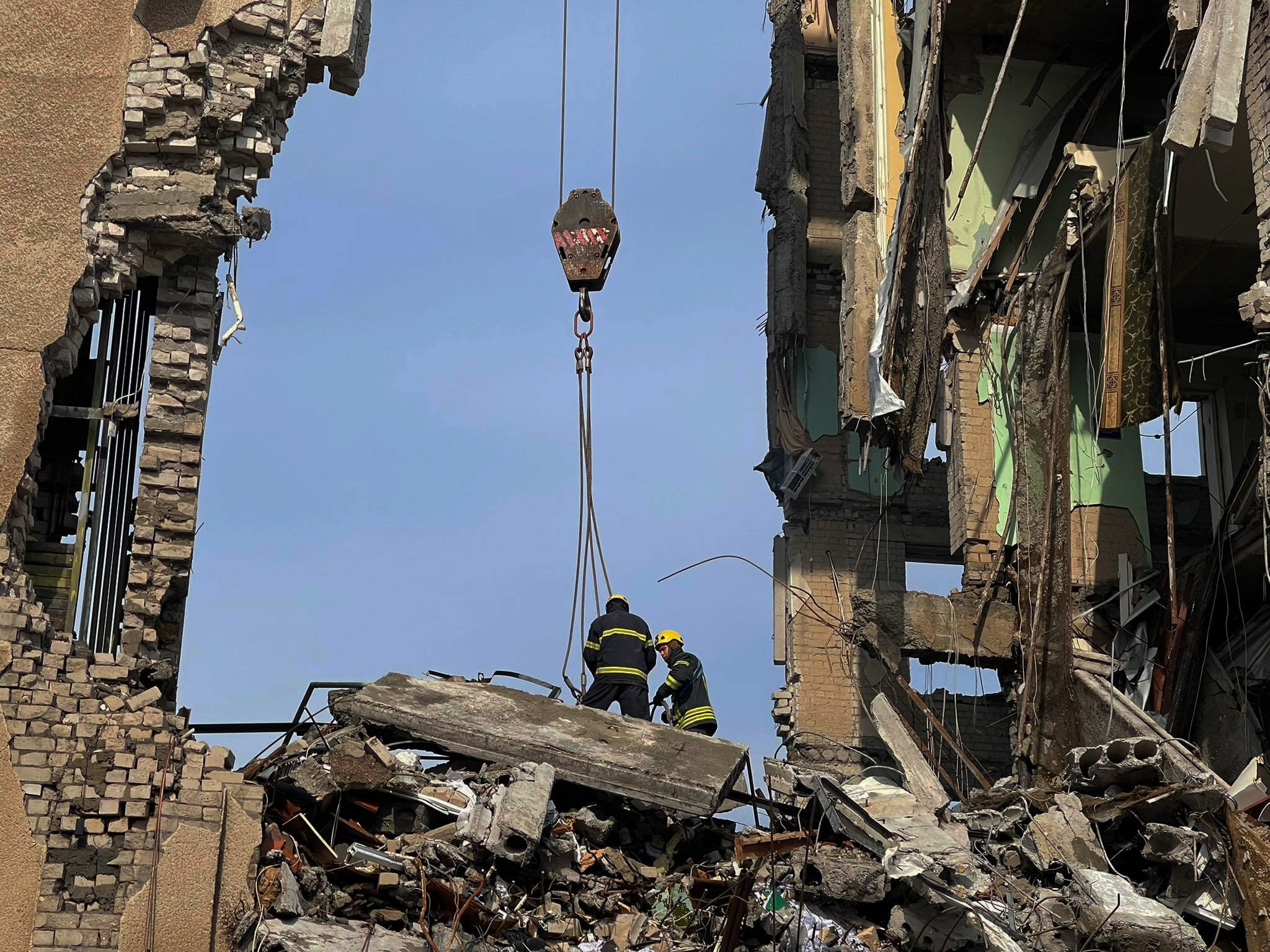
We rush into the yard: the garage is destroyed, the metal door is like a sieve, a neighbor's car burns down. I see a huge funnel from the explosion. Let it be, at least, find someone alive in these blockages. And at this time, somewhere out of the rubble of all this horror, a housewife appears with a pretty pug in her arms and says casually, "I'm fine." It's like she's out for a walk in the park.
And remembering this lady and the old grandfather who helped us get the neighbor out of the rubble, I understand that we will win. Everything will be Ukraine!
Oleh Sinichenko, Chief of Guard 3 State Fire and Rescue unit 1 State Fire and Rescue Department headquarters of SES of Ukraine in Kharkiv region, ensign of the Central Command:
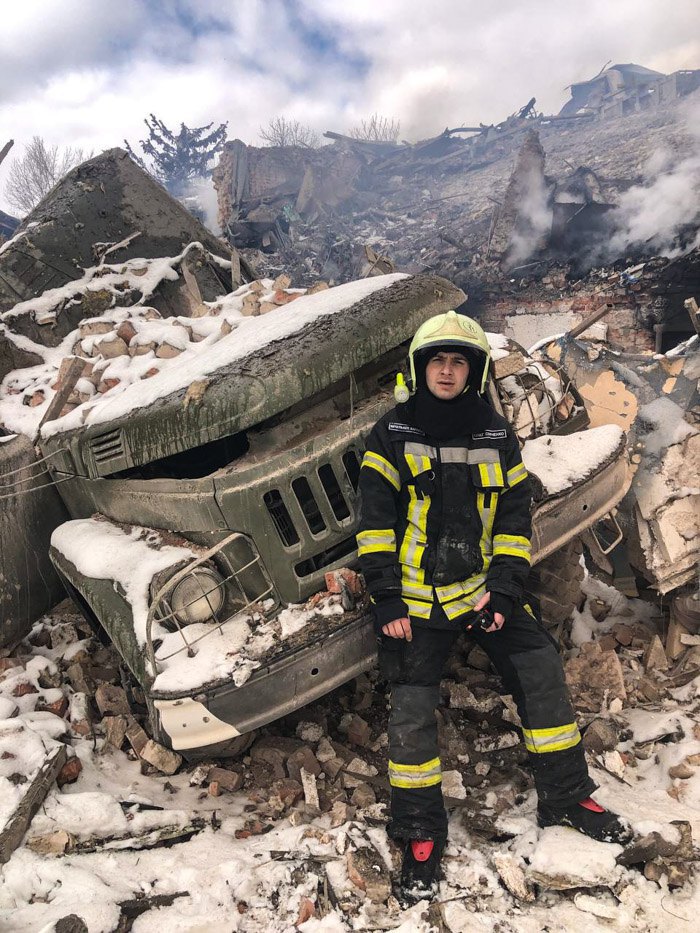
On the night of 24 February, the manager called and said that Russia had attacked, so I had to go to work. I couldn't believe it. It seemed like a fucking dream.
On the first day, people panicked, we received a huge number of calls like "Fire on street XXX", which, fortunately, were not confirmed. There were situations when we got dressed and ran to the cars, but at that time the call was canceled and we came back to wait for other calls.
Until there were Russian air raids on Kharkiv, everything was relatively calm. We even helped the police and the military after curfew. But after the airstrikes start… You go on a call, you see a plane attacking buildings, and you think, "Will it hit us or not?" Although it's scary during the artillery shelling, somehow you get used to them.
I decided to stay 24/7 until our victory, although I sent my family away from Kharkiv. When I have a day off, I volunteer. We agreed with our colleagues that we rush there together if the case is complicated.
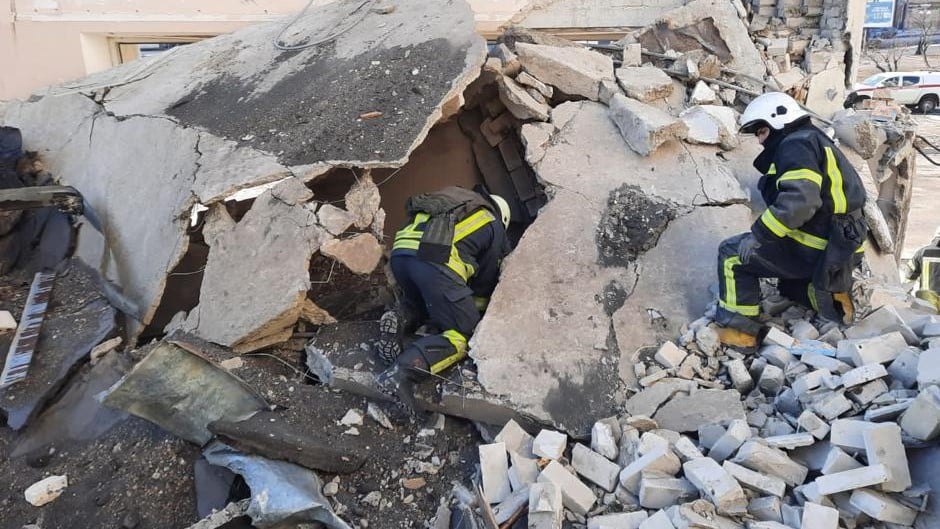
It is difficult to look at the destroyed infrastructure, at the destroyed houses. People raised money, built, and earned money for many years. Sometimes you go into a house and think: what is this person for, why did it happen to her or him.
After the airstrikes, the greatest joy is to find a living person in a completely destroyed apartment.
It is very wild when Russians fire on people in line for humanitarian aid.
Against the shelling and deaths, Kharkiv residents united and began volunteering, looking for food and medicine together, and sharing what they needed with each other. I learned a lot about Ukrainians: we can be a team, self-organize, help each other. But I hope this is the first and last war experience because war is scary.
Ihor Hetalo, Head of Shift of 8 State Fire and Rescue Department headquarters of SES of Ukraine in Dnipropetrovsk Oblast:
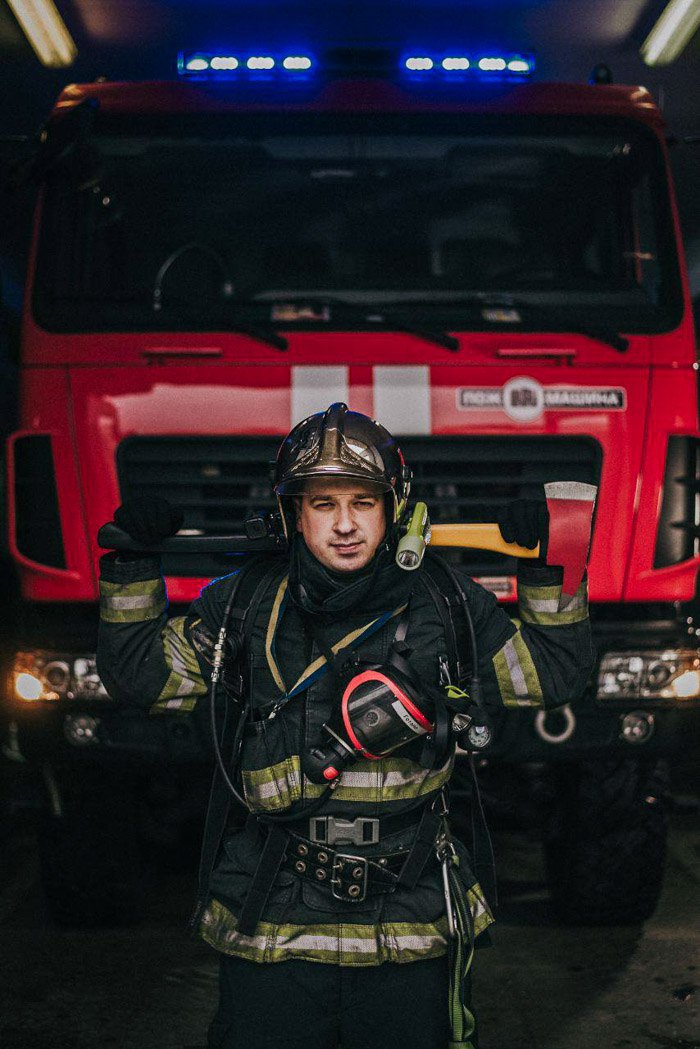
We work in an intensive mode: a day at home, a day at work. Before, there were two days of work, then three days off.
At the beginning of the war, when there was no shelling of Dnipro, we helped the residents to evacuate at the station. It was cold then, so we set up tents with heaters and gave people porridge with hot tea. The eyes of children and women fleeing the war have probably been etched in my memory for the rest of my life.
Now the atmosphere has become a bit disturbing, especially during the siren, when you are sitting and waiting for explosions or calls because of the hit of Russian missiles. When the air-raid alarm ends, and there are no cases, it feels like a stone falls from the soul. Thank God I haven't had to pull people out of the rubble yet, but one dead citizen was on call.
The main danger now is the behavior of citizens who ignore fire safety rules, ignore air alarms and generally behave as if russia is not waging war against Ukraine and destroying cities. Some strange people also smoke weed. This is now equated to sabotage, but many still do that. And rescuers are forced to spend their resources on extinguishing the grass.
Dmytro Nevmerzhytskyy, Deputy Chief of the 3rd State Fire and Rescue Unit of Zhytomyr:
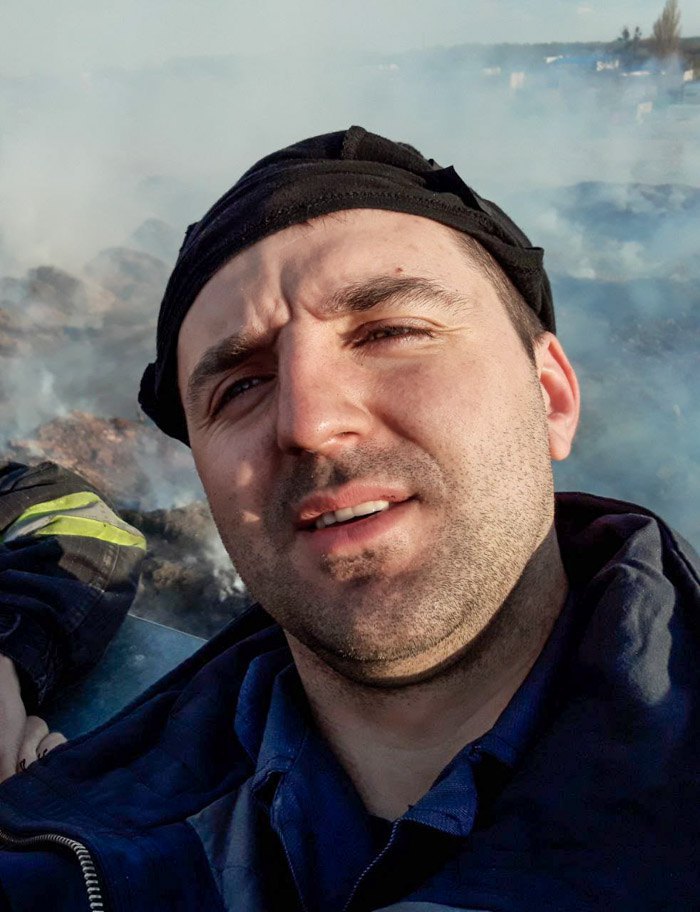
Now every case is a fire that happened once every five years in peacetime. The constant threat of missiles and airstrikes is exhausting morally and physically. I never imagined that I would ever see my city like this.
The most memorable cases were the explosion and the fire at the oil depot near our unit. We were sitting, watching TV, and then our unit shook from the explosion nearby. We ran to the shelter, saw a fire, and realized that the oil depot was on fire. We extinguished it for a long time. And honestly, it was scary. We have never had such a thing.
I remember the case when we pulled a woman out of the rubble and carried her on a stretcher to the doctors. We didn't know if she was alive or not. When the doctors said that she had survived, then ... (here Dmytro is silent for a few seconds, trying to find the words) it is an incredible joy.
The most impressive for me is people. United people, who share their last belongings. People who come up and ask if we need something and how they can help us.
